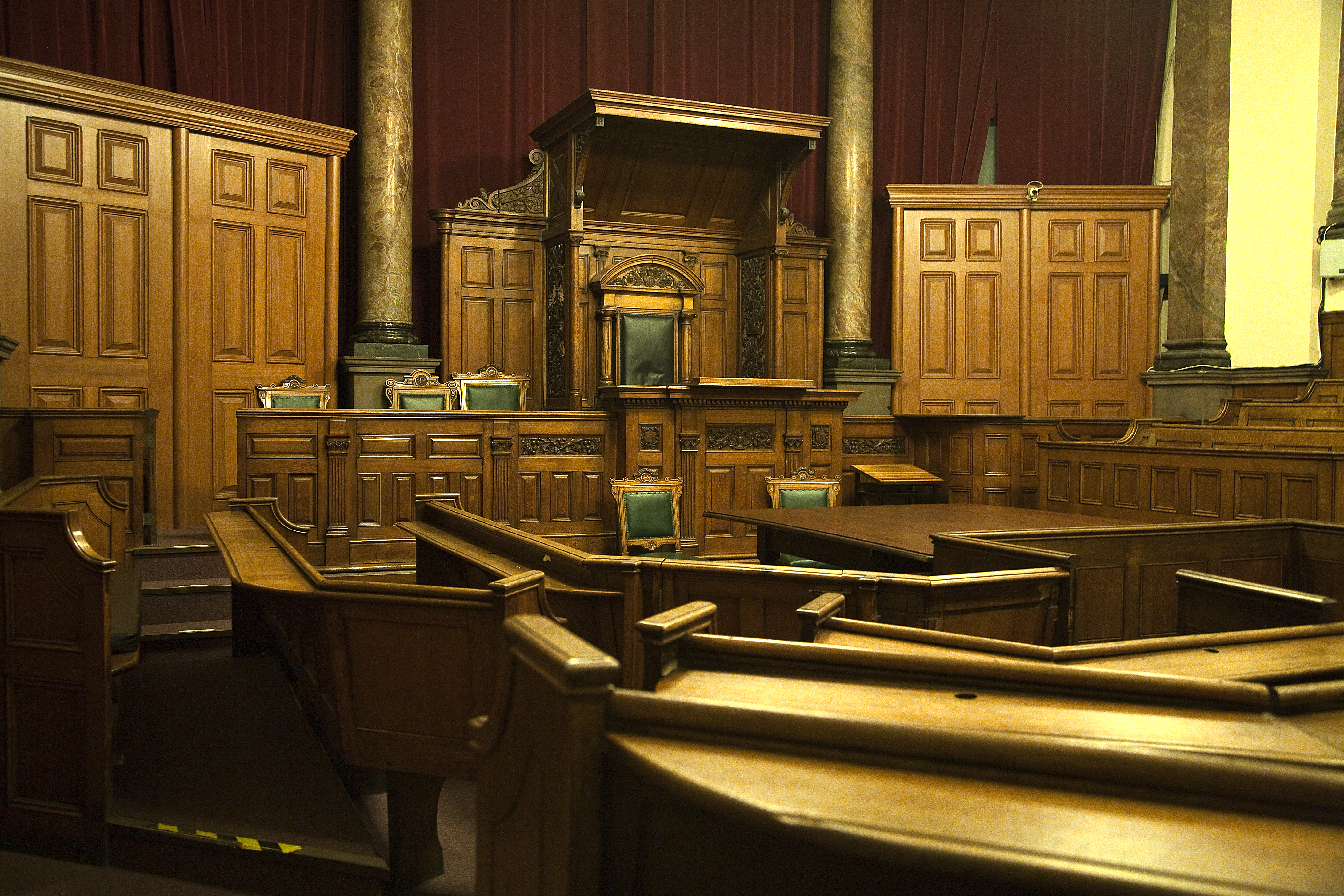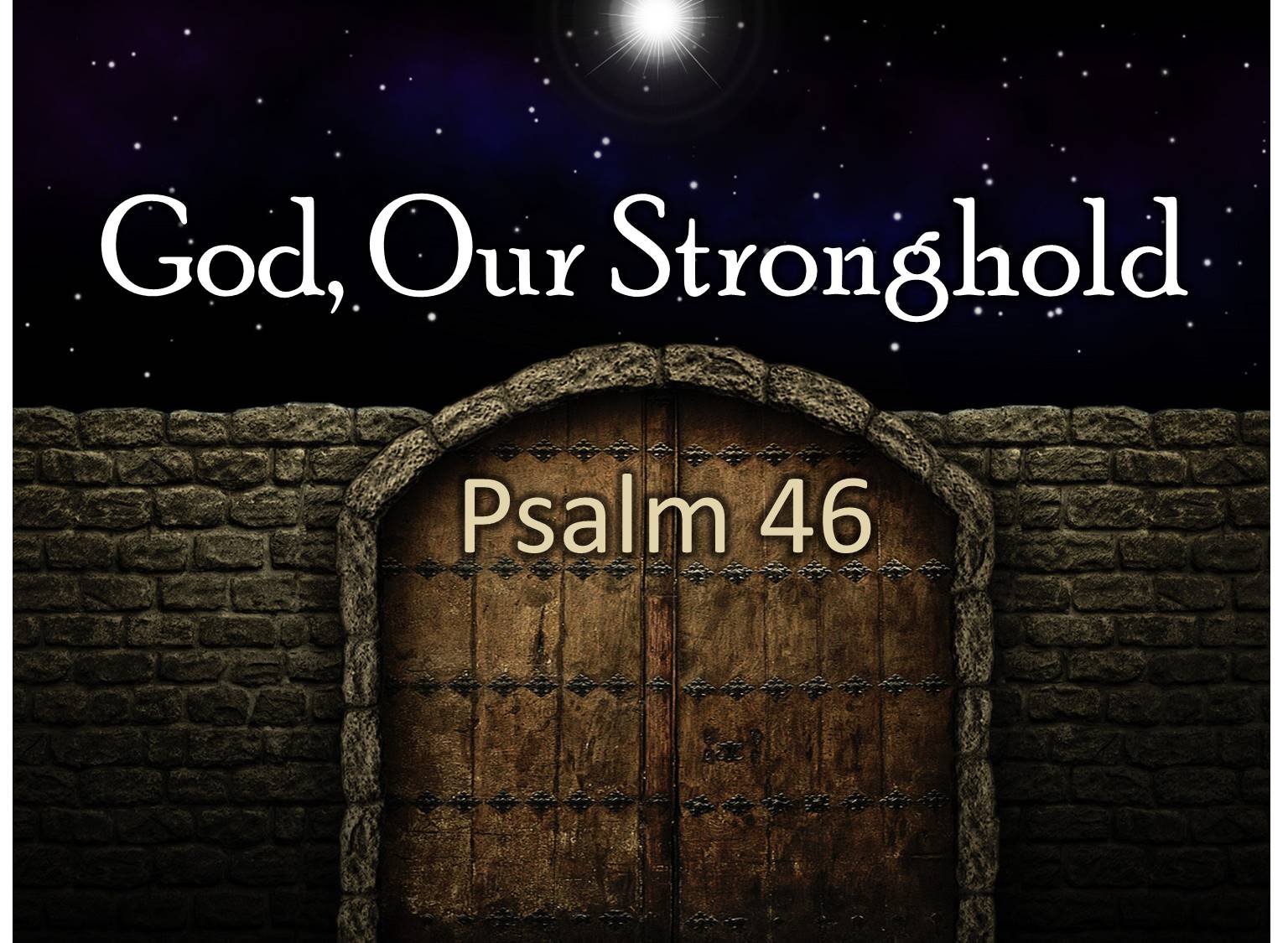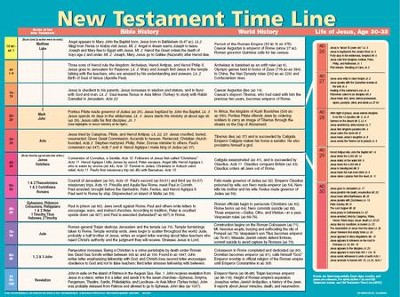Blog
John and Witnesses
Monday, March 30, 2020
Most Christians probably appreciate the significance of Habakkuk 2:4 (“The righteous one will live by his faith.”) to understanding the New Testament, but the significance of Deuteronomy 19:15 often escapes us. It reads, “One witness cannot establish any iniquity or sin against a person, whatever that person has done. A fact must be established by the testimony of two or three witnesses.” In other words, before you accept something, you need to have multiple pieces of evidence that support it.
We see this principle at work in many, if not most, of the books of the New Testament. In Matthew and Mark, the legal case against Jesus falls apart because the Sanhedrin can’t find witnesses to agree on a single crime that Jesus has committed. In Acts, the tripartite structure of the first gospel sermon in Acts 2 is based on Deuteronomy 19:15. In 2 Corinthians 13, Paul describes his multiple visits to the Corinthian church as multiple witnesses. In 1 Timothy 5, we learn that we should not accept a charge against an elder except on the testimony of two or three witnesses. And so on. Indeed, the more we look for multiple witnesses at work in the Scriptures, the more we will find them.
However, in no book of the Bible is Deuteronomy 19:15 more important than in the gospel of John. Some commentators have compared John to a cosmic trial, a proceeding meant to prove that Jesus is the Son of God. Naturally, in such a trial, witnesses are very significant. In John 8:13-18, the Pharisees insist that they can ignore Jesus’ words because He is only bearing witness about Himself. Jesus retorts that even though His word alone is sufficient, the Father also bears witness to Him.
Indeed, this confirmatory structure is repeated throughout the entire gospel. Jesus will make a claim about Himself (“I am the light of the world”) and establish the truth of His claim with a relevant miracle (healing the man born blind). Sometimes, the order is reversed, as in John 6, when Jesus first feeds the 5000, then announces that He is the bread of life.
The fullest elaboration of this idea, though, appears in John 5:31-47. There, Jesus acknowledges that legally, His testimony by itself is insufficient. However, there are three other witnesses who confirm Him: John the Baptist, the Father, and the Scriptures. Thus, the Jews’ failure to accept Him is inexcusable and reveals their rotten hearts.
Even though we are 2000 years removed from the religious disputes of Jesus’ ministry, this methodology remains extremely important for us. Anybody can say that He is the Son of God. Lunatics do all the time. However, Jesus didn’t merely say. He backed it up by working miracles that His enemies tried to discredit (“He casts out demons by the power of Beelzebul prince of demons!”) but could not deny. John the Baptist, who could have been a competitor, acknowledged His deity. Prophecies written hundreds of years before His coming describe His ministry and death in such specific terms that they confirm His divine origin as well as their own. When we put it all together, we too can have confidence that Jesus truly was—and is—the Son of God.
The Parable of the Rich Hoarder
Wednesday, March 25, 2020
One of the marks of the coronavirus crisis so far has been the sudden scarcity of a number of strange items. The empty toilet-paper shelves at grocery stores will, I think, become one of the enduring images of 2020. For myself, I decided a week or two ago that I needed some 00 buckshot in my life, but I discovered that there were no boxes of 00 buckshot to be had anywhere, either in town or online.
We’re in the middle of a coronavirus epidemic, not a dysentery epidemic, so there is no particular reason why people’s toilet-paper needs should have spiked. Instead, the only thing that has spiked is anxiety. Somebody, somewhere, decided that they needed to buy a year’s worth of toilet paper to prepare for the coronavirus, somebody else saw them doing it, got scared, and decided to do the same thing, and now just about anybody who goes to the grocery store will at least feel the temptation to buy an extra pack “just in case”. As a result, some have houses full of toilet paper while others are reduced to plaintive appeals on Facebook.
As I considered this bizarre phenomenon, I could not help but be reminded of the parable of the rich fool in Luke 12:13-21. Jesus relates this parable as a warning against every kind of greed, but the particular kind of greed we see on display is hoarding. The rich fool has been blessed by God, but he is utterly uninterested in sharing his blessings with others. In today’s parlance, he decides to tear down his toilet-paper barns and build bigger ones. However, his death reveals the poverty of his selfishness.
Today, we can reveal our own selfishness not only in the way we heap up wealth and possessions but also in the way we accumulate further possessions at others’ expense. In a time of abundance, there’s nothing wrong with putting aside something extra to prepare for an uncertain future. The prepper who buys an extra bag of rice or beans every time he goes to the store has harmed no one, so long as the shelves still are filled with rice and beans. He’s motivated not by selfishness and fear, but by wisdom.
However, hoarding in a time of scarcity is another matter. One of the sisters at church has a co-worker who recently was desperately searching for potatoes. This co-worker’s means are modest, and she relies on potatoes and other inexpensive foodstuffs to feed her family.
However, when she got to the grocery store, there wasn’t a potato in sight. Panicked people had bought up all the rice, beans, and potatoes, leaving her with options she couldn’t afford. Thankfully, generous people quickly stepped up to help her, but it’s not hard to imagine a scenario in which sacks of potatoes rot on a hoarder’s pantry floor while others go hungry.
The spiritual problems with this behavior are serious. To begin with, it’s a clear violation of the second commandment. You don’t love your neighbor if you’re hoarding the food they need to survive.
Additionally, it shows a lack of faith. Though the Bible encourages us to be prudent and wise, we are not to rely on our own prudence and wisdom. We are to rely on God. When we are so concerned about protecting ourselves that we harm others in the process, our behavior proclaims our lack of trust in Him.
This is a dark time. As Christians, we are called to be lights in it. We should strive to be known for our concern and generosity toward others. By contrast, when our fear drives us to hoarding, our light becomes hidden beneath the heaps of goods we have amassed. If this is where God finds us when He calls our souls to Him, the truth of our poverty will be eternally exposed.
God, Our Stronghold
Tuesday, March 24, 2020
Never in my lifetime have I seen an event have as significant effect on daily life as the coronavirus epidemic. I remember the fall of the Berlin Wall and 9-11, but in both cases, it was business as usual almost everywhere. Not so with the coronavirus! Indeed, it even has affected our worship here.
I don’t know how most feel about this, but I myself find it profoundly unsettling. Lots of things that I thought would go on unchanged suddenly have changed. Dealing with a crisis like this is outside the experience of even our oldest and wisest elders. The future is uncertain and may be bleak.
However, despite the uncertainties of life, one thing does remain certain. Stores may have closed, schools may have shut down, but God is still God. Indeed, He is still the same God He was thousands of years ago, a God who protected His people from every calamity and disaster so long as they trusted in Him. This morning, then, I would like to go through Psalm 46 to see what we can learn from its depiction of God as our stronghold.
The first thing that we see here is the importance of TRUSTING GOD NO MATTER WHAT. Look at Psalm 46:1-3. I have to say, I really love the CSB rendering of v. 1 here. It tells us that God is a helper who is always found in times of trouble. Not part of the time. Not even most of the time. All the time. When things are worst, that’s when God is closest!
Because that is true, we as His people don’t have to be afraid. People in the world, sure. Frankly, they should be afraid. They’ve put all their hopes in this life, all that they worked so hard for is being disrupted, and even life itself may end much sooner than they were expecting. If I were in that position, I would be terrified!
However, we have not put our hope in this life. We have put our hope in God, and that is very different. We know that as long as we draw near to Him, He will draw near to us. He will be with us through every day of our lives, and He will continue to be our strength and our protector even after our lives are over.
This doesn’t mean that we should abuse His protection by being heedless and foolish. God expects us to be wise, plan for the future, and take precautions. However, we do not rely on those precautions. We rely on God, and He will not disappoint us.
God will protect us, and that is true without exception. In vs. 2-3 here, the psalmist is envisioning essentially the destruction of the physical creation. As God once separated the land from the waters, the psalmist is imagining the earth collapsing back into the waters, so that everything becomes formless and empty again. Even then, says the psalmist, God’s people don’t have to be afraid. It is still true today that no matter how bad things get, we can continue to trust God.
The second portion of Psalm 46 concerns GOD’S HELP FOR HIS CITY. Let’s continue in Psalm 46:4-7. This is about the city of Jerusalem. The psalmist expresses his conviction that she will never be toppled. Why? Because she is the dwelling place of the Most High. She might endure some long, dark nights, but when morning comes, God’s help will come with it.
Today, of course, God’s promises do not apply to the earthly city of Jerusalem. Instead, He is concerned with the Jerusalem above, which is His church. As we sing, the kingdoms of earth pass away one by one, but the kingdom of heaven remains. The kingdom of Christ is an everlasting kingdom that will not be destroyed.
As a result, we can be confident that God will continue to support and sustain His church through this time too. I don’t think that’s a confidence that we can place in any merely human institution. I don’t know how, but I suspect that the coronavirus is going to change our society in some significant ways. Things are going to be very different a year from now than they are now.
However, the Lord’s church is one of the things that will not change. I fear that a number of businesses will fail in the coming economic downturn, but that won’t happen to our congregation. In fact, I think that the months and years ahead will offer many opportunities for the church to grow. There are an awful lot of people out there who have been trusting in other things and now are in the process of realizing how foolish that is. We always need God, but that fact is more obvious when nothing else is working.
Finally, look at how powerfully God will exert Himself to protect His city. All of the things that the psalmist said earlier were the worst that could happen, those are the things that God will do to protect His people from their enemies. Franklin Delano Roosevelt famously said that the only thing we have to fear is fear itself. I don’t think that’s true. The only thing we have to fear is abandoning God. He will take care of everything else for us.
The psalm concludes by urging us to KNOW THAT HE IS GOD. Consider Psalm 46:8-11. Here, we finally see what problem the psalmist is concerned about. At this point in time, God’s people are facing an enemy invasion. However, he predicts that God will defeat the invasion so thoroughly that His people’s enemies will lose even the ability to invade. His victory will proclaim His deity and glory.
Today, we need to consider the works of the Lord. Death is currently ravaging our nation, but that is only happening because God has given death permission to do so. Even the great enemy of God is ultimately doing His will. Illness makes us suffer, but it also reminds us of how powerless we are.
I think that most people in our country feel entitled to live to a ripe old age and even beyond. However, our apparent control over aging and death is only illusory. None of us can do anything to add so much as a cubit to our lifespan. The force that God unleashed in Genesis 3 is as much beyond our power to control as the earthquake or the hurricane.
From this, we must learn that God is God. He is not like us. We cannot attribute our understanding or our limitations to Him. He is vastly beyond us, vastly greater than we are.
If we are not numbered with His faithful, that thought should be terrifying. There is this devastating force out there that surely will destroy us eventually. However, if we belong to Him, it should be incredibly reassuring. His word will shake everything else, ultimately bringing this physical creation to an end, but His kingdom and His people will not be shaken. Truly, He is our stronghold, the only defender we will ever need or could ever hope to have!
More Gospel Chronology
Monday, March 23, 2020
Our reading for this week features three stories that appear in all three of the Synoptic Gospels: the healing of the leprous man, the healing of the paralytic, and the call of Matthew/Levi. However, an examination of the context of these stories reveals that Matthew handles them differently than Mark and Luke do.
Mark places them back to back to back except for a brief summary of Jesus’ ministry in 1:45, Luke does the same, but Matthew includes a chapter’s worth of material (Matthew 8:5-34) between the healing of the leper and the healing of the paralytic. In his narrative, the healing of the centurion’s servant, the healing of Peter’s mother-in-law, the cost of discipleship, the stilling of the storm, and the story of the demons and the swine all come between the two.
Normally, I regard Luke as the most chronological of the gospels, but here, I think it is Matthew rather than Mark and Luke who is organizing his material chronologically. Mark has taken three stories that occur out of strict sequence and arranged them thematically, and Luke has done the same (this happens, I think, because the gospel of Mark is one of Luke’s sources).
In Mark’s account, everything from 1:39-2:22 is about the true nature of Jesus’ healing (though 2:15-22 is shared with the next Markan theme—the opposition of the Pharisees). The first story, the story of the cleansing of the leper, reveals the limitations of Jesus’ power. His subject is physically healed, but spiritually, he remains disobedient. Rather than obeying Jesus’ command to be silent, he tells everyone about the miracle.
The next story in the sequence, the healing of the paralytic, uses physical healing as proof of spiritual healing. Jesus tells the paralytic that his sins have been forgiven. Then, so that all the incredulous onlookers can know that Jesus is telling the truth, He cures His paralysis too—an actual outward sign of an inward grace!
All of this prepares us for Jesus’ summons of Levi from the tax booth. “Follow Me,” He says, and Levi does. In Luke’s account, Jesus clarifies for us in 5:32 what just has happened. He has called a sinner to repentance.
But how can we know this? How can we know that the heart of the loathsome tax farmer has been changed? How can we know that he has been spiritually healed and reconciled to God?
Simple! The previous story has proven the point. Because the paralytic walked, we can be sure that the Son of Man has authority on earth to forgive sins—even the sins of a tax collector like Levi! Even today, Jesus’ miracles of physical healing should reassure us that we have been spiritually healed, and that through His power, we can continue to be.
All this should also teach us a powerful lesson about the depth and the intricacy of the gospels. Yes, Mark 1:39-2:22 does contain three stories about Jesus, and we can understand them and appreciate them separately as Jesus stories, but much more is going on in the gospels than merely that! Once we begin to consider the arrangement of these narratives and the authors’ (and/or the Author’s) reasons for so doing, we can come to a more profound appreciation of their meaning and relevance to us.
The Other Fiery-Furnace Story
Friday, March 20, 2020
Many of us can remember studying, even in childhood, the story of Shadrach, Meshach, and Abednego and the fiery furnace in Daniel 3. Indeed, in the Joliet church building, there was a semi-permanent fiery furnace constructed out of moving boxes and brightly hued construction paper. It was sized so that preschoolers could walk into the furnace (through the crepe-paper flames) and admire the angel at the back.
However, most of us are not as familiar with the other fiery-furnace story in the Bible. Indeed, preacher that I am, I only noticed it myself a year or two ago. It appears in Jeremiah 29.
Contextually, the Jews who have already been carried off to Babylon have a problem with false prophets (surprise!). Two of them in particular, Ahab the son of Kolaiah and Zedekiah the son of Maaseiah, have been leading the people astray with lying “words of the Lord” while practicing adultery on the side. God is not best pleased with them and pronounces judgment upon them.
However, Jeremiah 29:22 contains some interesting information about the form their doom will take. It reads, “Because of them this curse shall be used by all the exiles from Judah in Babylon, ‘The Lord make you like Zedekiah and Ahab, whom the king of Babylon roasted in the fire.’”
This is worth considering for a couple of reasons. First, it corroborates the historicity of the book of Daniel, despite the scoffing of the liberal-theologian crowd. Even the most rabid form critic thinks that part of Jeremiah 29 dates from the time of the exile, and it confirms that, yes, Nebuchadnezzar was in the habit of incinerating people he disapproved of.
Second, though the text doesn’t explicitly say so, one imagines that to a point, the experience of Zedekiah and Ahab was similar to the experience of Shadrach, Meshach, and Abednego. Zedekiah and Ahab might not have mouthed off and made the furnace extra-hot, but down the hole they went regardless. At the bottom, they found not salvation, but no angel, no protection, and no hope.
All of us have fiery furnaces in our future someplace. Maybe it won’t be because we refuse to bow to an image set up by a Babylonian monarch, but there is some trial waiting for us that will try us to the depths of our being. In the heat of that trial, one of two things will be true. Either we will go through it as faithful servants of God, or we won’t, and that distinction will make all the difference.
Sometimes, the difference won’t be obvious to worldly eyes. In 2 Timothy 4, Paul anticipates being executed for the cause of Christ, and he was almost certainly right. However, 2 Timothy 4:18 points out that Paul, though dead, would be rescued.
Zedekiah and Ahab were just dead.
The furnace will reveal the truth about who we are and what we have done. If we have been righteous like Shadrach, Meshach, and Abednego, the furnace will expose that. If we haven’t been, well, the furnace will reveal that too.


